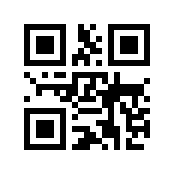Main change
- use
zero, unitinstead ofPoly([0]), Poly([1]) - move original tests of QRCode.jl into
test/tst_overall.jl
For a highly-optimized algorithm where bandwidth is the bottleneck, UInt8 vs Int can make a lot of difference in performance, e.g., https://github.com/JuliaImages/ImageMorphology.jl/pull/102#issuecomment-1165297247. But for QRCoders, it might be too early for this to make a difference.
I did some tests about type allocations:
- It has slight effect when changing
func(::Int)withfunc(::Integer) - However, the efficiency decreases observably when type conversion is involved
struct foo data::Vector{UInt8} end data = rand(0:255, 10^4) uint8data = UInt8.(data) @btime sum(foo(data).data); # 4.105 μs @btime sum(foo(uint8data).data); # 836.509 nsIn order to increase the code efficiency, we need to avoid type conversion as possible. (we might consider that in the later stage)


Codecov Report
100.00% <100.00%> (+1.57%)100.00% <100.00%> (ø)98.61% <100.00%> (+3.94%)100.00% <100.00%> (+1.63%)Help us with your feedback. Take ten seconds to tell us how you rate us. Have a feature suggestion? Share it here.